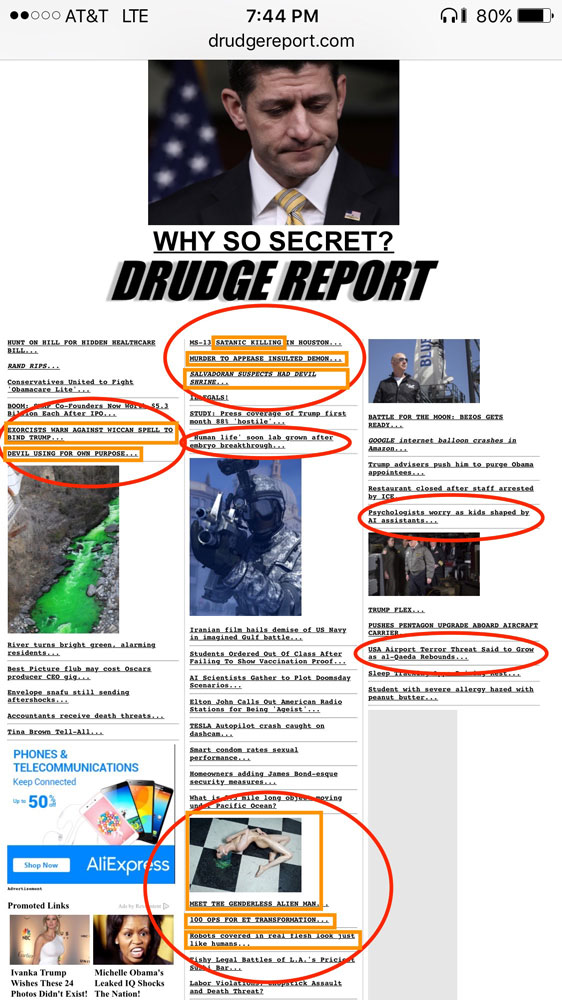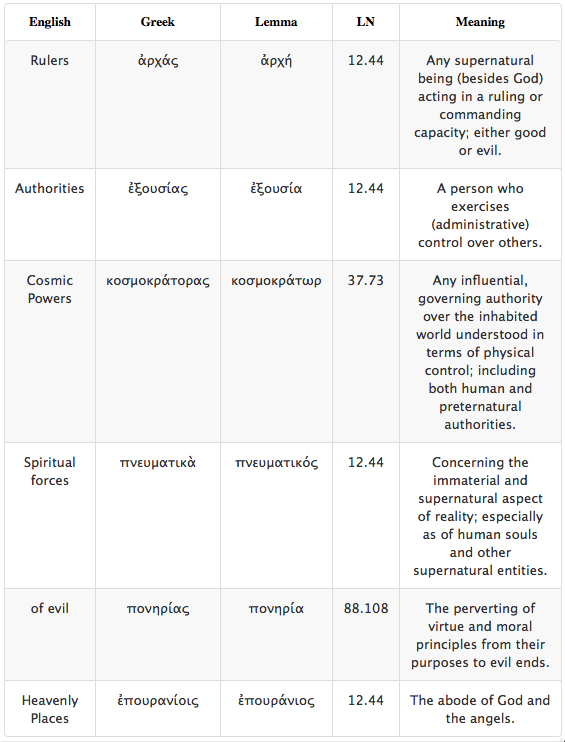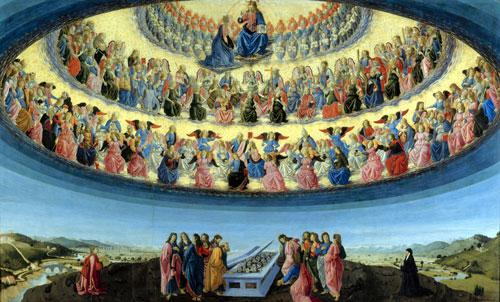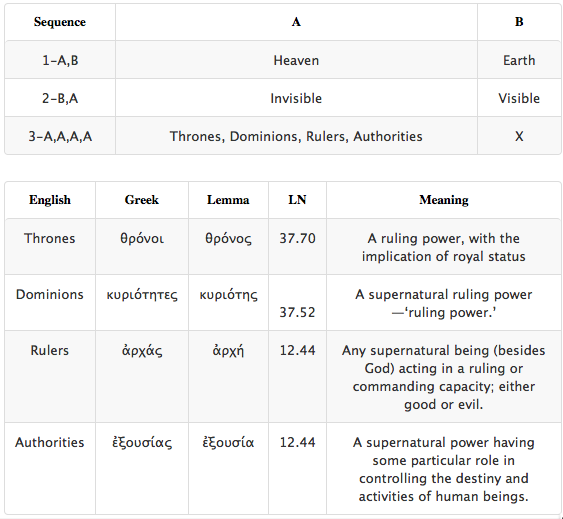It’s a shame to see people, who believe (or might believe) in the supernatural, engage in pointless arguments. Even more pointless is talking about it, at all, with those whose beliefs are confined to the limits of the five senses.
For the skeptic, new inventions must bring the invisible within range of the five senses. Only then are they “free to believe” in anything invisible. Prior to the microscope, the skeptic would have reported you to the looney bin for your “outrageous” belief in the microscopic. After the microscope, the skeptic thinks it was your sanity that was restored by the invention, not theirs!
Separating Skeptics from Cynics
This is the sort of “progress” the skeptic is limited to unless they take a “leap of faith”. Fortunately, for the skeptic, that leap is possible. If presented with sufficient evidence, skeptics can be jarred into a reluctant admission that invisible things exist. The cynic, on the other hand, will remain unfazed by any evidence put in front of them.
Miracles, Defined
A miracle is a natural event with a supernatural cause.1
In other words, miracles look, sound, feel, smell, taste … normal. Their appearance is natural, their cause is invisible. So, where does that leave us with separating skeptics and cynics?
It leaves us where C.S. Lewis arrived a long time ago:
C.S. Lewis on Cynics
… the question whether miracles occur can never be answered simply by experience. Every event which might claim to be a miracle is, in the last resort, something presented to our senses, something seen, heard, touched, smelled, or tasted. And our senses are not infallible. If anything extraordinary seems to have happened, we can always say that we have been the victims of an illusion. If we hold a philosophy which excludes the supernatural, this is what we always shall say. What we learn from experience depends on the kind of philosophy we bring to experience. It is therefore useless to appeal to experience before we have settled, as well as we can, the philosophical question.2
The skeptics “philosophy” is, “I’ll believe it when I see it”. The cynic’s “settled philosophy” is the supernatural does not exist, regardless of what is seen.
Skeptics are worth your time; cynics are not.
Prisoners of Time
Both skeptics, and cynics, are limited by the detection devices of their day. To them, everything discovered is obvious, and that which is yet to be discovered, is fantasy. Bring evidence in front of their senses and you’re being “reasonable”. Otherwise, the matter is closed to all but the “unreasonable”.
The reasonable man adapts himself to the world; the unreasonable one persists in trying to adapt the world to himself. Therefore all progress depends on the unreasonable man.3
Do not be conformed to this world, but be transformed by the renewal of your mind, that by testing you may discern what is the will of God, what is good and acceptable and perfect.
The price of such “reasonableness” is imprisonment within the limits of their era. They are, for the same reasons, prisoners of science.
Prisoners of Science
Much of what’s left for mankind to discover is beyond the range of the five senses. Without access to an electron microscope, for example, you won’t be able to “see” much of anything in such areas of discovery. So, what do you do?
You’ll need a mediator between the known and the newly discovered; between what’s true or false, and the newly discovered to be true or false. What do you call someone who functions as a mediator between visible and invisible things?
They’re called priests. But the skeptic will use a different word for the same role: scientist.
Those who won’t contemplate the supernatural need no priest to interpret scripture. They do, however, need a mediator between themselves and nature.
As the frontiers of human knowledge push beyond the ability of the five senses to perceive, skeptics and cynics need their “priests” to be told what’s real, and what’s not real, more than ever.
The Secular Priesthood
And so, scientists have been promoted into a secular priesthood. They are the “reasonable”, and therefore trusted, mediators between what exists and what doesn’t; between what is true and false; and what is, therefore, deemed reasonable and unreasonable.
Who cares what scientists do as long as the remote control (invisible infrared beam) changes the channel of the TV?!
If that were as far as it went, there’d be reason only to celebrate. When mankind is working hard, and using the fruits of their labor to serve mankind, then everything is just dandy!
Unfortunately, Reality is not as simple, nor as benevolent, as all that.
And their ‘church’
Scientists, like priests, are not in charge. They serve their parishes, and report to their bishops, cardinals, and pope. The scientists know them as customers, labs, foundation administrators and benefactors. Can we depend on the good-spirited benevolence of this organization?
Unfortunately, we can barely trust the formal clergy, who’ve taken public vows to be Holy and good, pledging loyalty to only their Creator.
Whether we like it or not, scientists are becoming more widely-accepted as mediators between the seen and unseen realms, than priests. And though science has no purview on philosophical or theological matters, scientists and priests are two kinds of priesthoods, pitted against one another.
Priests Travel Faster
The frontiers of human discovery have pushed out of pandora’s visible box and into invisible realms. Because of this, scientists may feel like they’ve finally arrived at the big game.
But, wherever a scientist may go, his arrival will always be preceded by either a priest or a poet. These travel faster than light; at the speed of thought. They do that by combining story with imagination. And while scientists may work on practical discoveries beyond the visible (finally!), priests and poets have been contemplating “the beyond” since the dawn of humanity.
Conflict? What Conflict?
Personally, I see no conflict, whatsoever, between science and faith. Science explores and quantifies the world as the Creator has turned it over for exploration. I thank God for every discovery and invention! So far, every source I’ve investigated, claiming a conflict between science and faith, has been one side, or the other, arguing past one another. Those who’ve thought through the roles of science and faith are left with nothing but the progress of each to celebrate!
Headline News of Devils, Demons, Witches, Robots, ETs, Exorcists, AI & Terror Threats
… And that’s just in one day! Here’s a snapshot of the drudge report headlines on the night of March 2, 2017, ~8 pm.
7 Questions for Mommy & Daddy
I have an 8-year-old son who reads well, now. I know the following questions could easily be put to a parent whose child is looking over their shoulder and reading the news headlines, above:
- What’s an exorcist?
- Do witches really cast spells?
- Is the devil real?
- What’s the difference between Satan and the Devil?
- Why did they murder someone for a demon?
- Do people come from God or are they grown in a lab?
- Are there really ETs or was that just a movie?
What are the answers to those questions, mommy and daddy?
If you’re a skeptic or cynic about the supernatural, that’s fine. Coming from your child, then, what’s your answer to this question:
If the supernatural does not exist, why is it all over the news?
Hollywood, Game Developers, or You?
A worldview without a handle on Realities beyond the limits of the five senses, is so incomplete it leaves one unable to even discuss the news. I would prefer to lead such conversations with my children, not merely keep up, or react to the news.
When introducing a book called “The Unseen Realm”, and its more easily read version “Supernatural”, to friends, I say that, if we (parents) don’t teach our children about the supernatural then 20-something game programmers, and Hollywood screenwriters, will gladly fill in the gaps.
I would prefer to teach my children what I believe to be the truth about the supernatural aspects of the world. I don’t want it to come from the imagination of a screenwriter or game developer. And, I don’t want it to come from the imagination of a paperback writer who’s decided that vampires or demons are “Hot” subjects, right now.
My 8-year-old has me gasping for breadth (pun intended) with his questions. It’s astounding how discerning, and naturally oriented towards the supernatural, children are. If you have kids, you already know this. If you don’t, just watch one for 5 minutes. Your world may be limited by what you can see. But, their world isn’t.
More than Child’s Play
Discussing the supernatural is more than child’s play.
“In the contemporary world where there is a strong current of postmodern relativism…many people are far more interested in their own feelings, or what “works for them”, than in the question of what is actually true. But there is a price to be paid for rejecting the truth.”4
End of Part 1
Attributions
Main Article Photo by Felipe Posada, The Invisible Realm, Toy Boat
Creative Commons “Attribution-NonCommercial”








